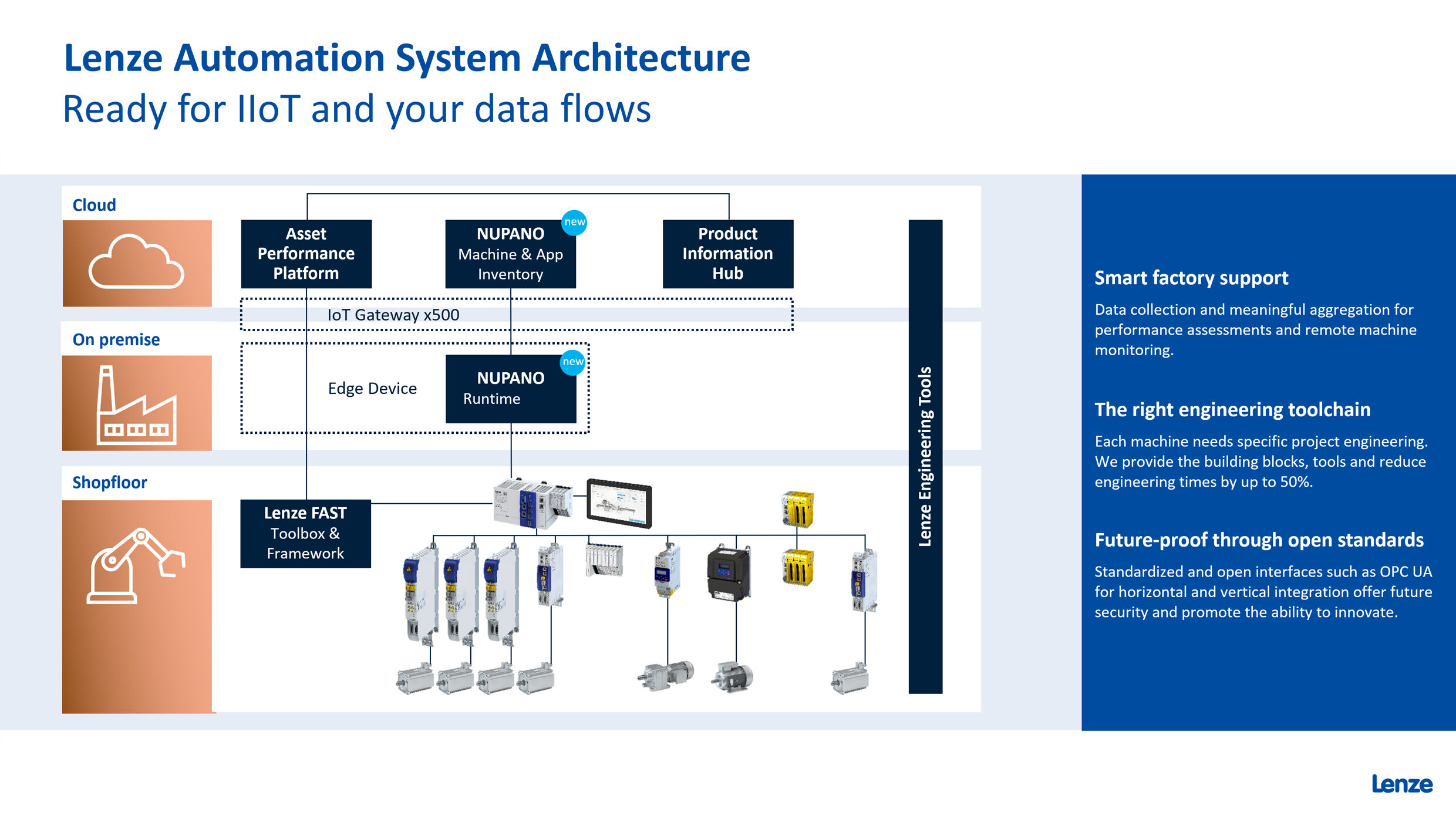The beginning of the year is always a good time to look ahead. This time, we are looking forward more than 12 months. But, together with Daniel Lindeman, vice-president Product Management Automation Systems at Lenze, we take a look at what the future of automation looks like. Will ChatGPT be significant for engineers too? How do we automate automation? And can it be cyber-secure at all? Find out with us in this talk.
” New developments are coming our way that will thoroughly shake up our business models. Every company, from the smallest SME to the largest multinational, is now convinced of the added value digitalisation can bring. Software is the future to improve performance and gain competitive advantages. The question machine builders are asking themselves is with whom they can do this. After all, it is not easy to find the right technical experts. That is why we want to act as a development partner with the right portfolio on the one hand and the expertise to help put that software layer on top of their machines on the other. We want to help build that bridge between OT and IT.”
One such development that cannot be dismissed from the media is ChatGPT. Do you see potential in this for engineers?
“Not yet today. We live in a disruptive time era .The technology is still in its infancy, but it does have the potential to be the same breakthrough as the first iPhone was a decade ago. It brings the power of artificial intelligence to the fingertips of the general public for the first time. Something we, and other automation specialists, are already applying behind the scenes to achieve smarter products. Simple standard tasks can already be programmed automatically today with our FAST templates: 80% of the work done, without ChatGPT. The next steps are in the more complex work. However, over time, technology may open the door to create automation solutions resulting in new business models.”
The next big thing for Lenze is Nupano, launched to mark the company’s 75e anniversary? How does this product fit into these trends?
“Every machine is a combination of hardware and software. Because that way, we can capture data from the machine, visualise it, analyse it .With one clear goal in mind: getting answers on how to do things better. We already have the apps to work with that data and help machine builders with condition monitoring or predictive maintenance, for example. The final step we have now taken with Nupano is to ensure easy integration of that software into hardware. We have filled a toolbox for the engineer with which he can monitor his machines throughout their life cycle. Hardware can easily last 10 to 15 years. Software has a shorter expiry date , which is where developments happen so much faster. This way, we can follow that pace without any problems and continuously improve machines, for example to be energy-efficient.”
Maybe that’s the most important topic for many businesses. How can we accelerate becoming more sustainable? Do those answers start in the heart of the machine, in the main drive?
“Lenze uses a broader definition of sustainability than just energy efficiency. It is also about education, social commitment, circular ecodesign We need to think of ways to do business today in order to ensure a prosperous life for future generations. For us, that story for machines starts from a systems approach. The most fuel-efficient IE4 engine will contribute nothing if we accumulate energy losses in the rest of the main drive. So we take a broader view by sitting down with a customer as early as the concept phase of a new machine and looking at the best hardware and software components. If you can put the perfect puzzle together, then big leaps forward are possible. Digitisation is an essential element in that. It is a tool to create sustainability. That also explains why we are all making the shift to digitalisation so quickly.”
But surely this is not without danger? Cyber incidents are sadly a recurring phenomenon.
“This is the third pillar in the future of automation. Everything has to be smart, sustainable but also cyber-secure. It is absolutely primordial that our customers’ processes can keep running. Many companies are obstinate about using the cloud. However, it offers so many advantages to take steps forward precisely in those other two areas. That is why we need to work harder as an industry to make processes secure. This starts with inherently safe products, but also by sensitizing users on how to integrate technology safely and use it easily. As Lenze, we put our weight behind this. By combining our knowledge of automation and digitalization from all sectors with our customers’ knowledge of their processes. That’s where our added value is.”


